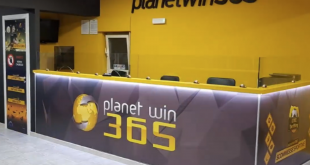Drazan Planinic (pictured, above), COO at NSoft, reflects on some of the biggest challenges that have faced the NSoft sportsbook development team before walking us through the steps taken to overcome these hurdles.
As an enormous sports enthusiast, I firmly believe that sports teams would be nothing without their fans, who bring more than just passion to the game.
Sports betting is an integral part of the overall sports fans’ experience, and with the further development of mobile technology, sports betting has become so easy – leading to the gamification of every game moment.
Consequently, there is also a large community made up of sports fans, casual bettors and professional bettors who have available all of the modern technologies. Each of these fan groups all follow their favourite teams and sports results.
But as market trends and technologies continue to evolve, we’re seeing more players crave a more entertainment-led experience. This has to be at the forefront of your mind when developing new sportsbook software.
Before I became the Chief Operating Officer, I held the position of Head of Sportsbook at NSoft. These were considerations that I had to make in my role on a regular basis.
It’s worth mentioning that the further development of our sportsbook solution focuses on achieving two goals. The first is to ensure continuous growth and polish the existing solution to accumulate market position and competitiveness.
The second goal is to develop the Next Gen Seven Sportsbook to give us the competitive edge and make us stand out in a crowded market.
I’m proud of our team’s progress over the last few years. With that in mind, I wanted to shed some light on some of the most important challenges that our sportsbook development team has come up against before spilling some secrets on how we overcome these issues to create a more stand-out product.
Analysis of data points with the Tickets Routing Algorithm
The first challenge we faced was our Tickets Routing Algorithm. When we made the Sportsbook Self-Managed system, a powerful software tool for bookmakers that enables full flexibility, odds, and risk management autonomy through different delivery channels, we had a number of questions in mind:
- How do we make sure that the ticket will be sent to the right bookie?;
- Do traders need to have the option to select certain bet shops or online players, or VIP players only? The answer is yes.;
- What if someone who is handling 25 bet shops goes to the bathroom, what happens to his tickets? We won’t send to the bathroom, right?;
- What if one bookie has too many tickets from one bet shop, and other bookies are not so busy? How do we keep the workload balanced?
These were all legitimate concerns and questions that we needed to address. And the final question was: “some clients don’t have bookies online during the night, but the tickets keep coming, and they must be handled. How do we mitigate that problem?”
We solved all of those dilemmas with the implementation of the routing algorithm. Before the ticket is sent to a bookie, the dynamic algorithm takes into account a lot of data points, analyzes the info, and routes the ticket to the most suitable bookie.
Our algorithm has its flow of thought:
- During the last period, did this bookie already receive tickets from this specific betshop? The answer to this question is a weighting data point per bookie, changing dynamically over time.
- Did some of the bookies specifically select that betshop? The answer to this question adds another parameter to a weighting pool.
- Did a few of them select the same bet shop?
- How many tickets are already in the bookie’s queue? Here we have some routing thresholds preventing a ticket flood for a specific bookie.
- Is there a bookie, or does the system work automatically? We rely on automatic rules and liability models, but they are all tuned by the bookies.
These data points (and many more) are taken into account and calculated every time the ticket is played to ensure that the best service for clients and punters is delivered.
Enhancing Live betting for the Retail channel
Sportsbooks in retail are challenging because a number of the issues are connected to handling hardware in distant locations. One must tackle printed offers and device peripherals and should consider limited requests on TVs, event IDs and many more details. For a B2B Sportsbook provider, the complexity goes even further with issues concerning many clients, customised offers, different time zones, and different markets.
On the other hand, you also have limited display space (screens available in the shops) and a limited number of bookies to handle the offer worldwide.
So, how do we deliver live betting in a retail environment across several continents, in thousands of betting shops, and with different offers – whilst still using the same trading team?
These are some of the challenges that we encountered:
- The offer for retail on TVs needs to be flexible; some shops have three or more screens available for live events displayed, and some only have one.
- Event IDs need to be short to have quick bet placement.
- Some clients need a deep market offer with a stream in retail for one match only, but some would like to set 20 matches on one screen with top markets displayed.
- Some clients want a turnkey solution, where they just turn the TV on, and the offer is there 24/7; others like to make the offer themselves. And then, some would like to make the offer by themselves in peak times but for the rest of the day to have it done by our team.
Luckily we came up with a solution that can solve these concerns and many more challenges we came across along the way.
- We made different layouts for different purposes. From an option of a stream with one or two events per TV, but with many markets, to options with 10 or 20 events per TV with main markets displayed.
- We made TV display options ranging from 1/1 (for shops with one TV) to 4/4 (for shops with four TVs), with up to 10 different display options, where each TV can display a different offer. Max offer on 10 TVs would have around 250 events simultaneously.
- We made a provider-client toggle; if it’s on the provider side, the offer is received from us 24/7; if the client side is “on” the offer switches to the one prepared by clients’ traders, and the switch works on the fly.
- One extra point, if a client likes the offer we made but would like to change some events or markets, it’s a Copy/Paste option that reduces the time for clients to prepare their offer.
- While selecting the events, traders need to have a visual of how many matches will be on the screen during the day; we cannot have the option to have an empty screen.
- Event, market, outcome, team, and tournament names must be short, translated into any language, and also, there is the option of custom names for specific clients.
- During the event, some markets are closed (e.g. HT), so the markets are also dynamic, and they change on the screen during the match, etc.
Sports betting is at the heart of any betting shop
Sports betting is more than a product. It is at the core of every operator – every betting shop. As a supplier, our value lies in the quality of answers to only one question: “How can our software improve operators’ business?”
As NSoft matured through the years, our business operations gained a global footprint, and the relationship with customers focused on their needs and building trust to gain mutual growth. Every update of features on one of our products or development of a new product category relies heavily on customer feedback and market trends.
Stay tuned for Sportsbook Deep Dive #2.









